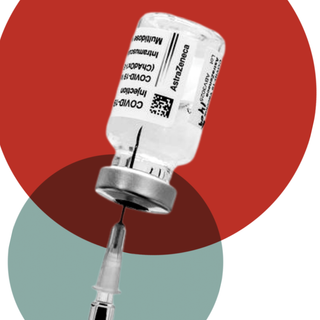The Ludhiana government on Monday expanded the definition of frontline workers, deciding to include teachers, bankers, journalists, advocates, judges, and NGO workers in the category of people eligible for getting Covid19 vaccines.
The city’s Deputy Commissioner Varinder Kumar Sharma said people who remained active during the pandemic, including people from these categories, should be identified as frontline workers and vaccinated from now on, in an order issued Monday.
“The idea is to go with the spirit of the definition of ‘frontline workers,’ not the letter alone. The categories which I have listed are the ones which I know have been working actively in the field and need to be vaccinated immediately, so that they are able to continue with their activities and also not spread the disease,” Sharma told The Print.
India began its vaccination drive in January and has vaccinated almost 3 crore people since. The drive initially prioritized healthcare workers, who form the first line of defense against the Covid19 pandemic, and people aged 60-plus. In the second phase of vaccination, launched last month, the Union government included police, civil defense, home guards, paramilitary personnel, municipal workers, disaster management professionals, fire safety personnel, and prison staffers. The underlying objective has been to prioritize people who are at high risk of contracting Covid19 and who are at risk for having severe symptoms; for instance, those above 60 years of age and those between 45 and 59 years of age with pre-existing health conditions have been given priority in the current phase.
Related on The Swaddle:
When We Finally Have a Covid19 Vaccine, Who Should Get it First? Experts Disagree.
Broadening the scope of frontline workers achieves a pertinent goal: to recognize the contribution a wide range of groups have made during the pandemic and the efforts of people who have laboriously undertaken logistical and social welfare activities crucial for India’s recovery.
“During the course of the pandemic, we saw so many NGOs sticking their necks out and helping others despite the risks. Then there are teachers who have started going to schools; they need to be vaccinated immediately so that they don’t spread the disease. Banks remained open virtually all through the pandemic; their employees need to be vaccinated. Similarly, all those involved with procuring food grains in Punjab should be vaccinated,” Sharma said.
A number of people on ground zero are involved in volunteer work, media reporting, supply chain logistics, the functioning of schools, and other services deemed essential by policy standards. Almost 57 media workers have died due to Covid19 in India as of March 12, with the total tally of media deaths touching 865 people globally. Other industries can attest to a similar trend in deaths due to the lack of Covid19 protective measures and equipment. As India’s vaccination drive gathers steam, different sectors, like gig workers and retail workers, have appealed to be included in the vaccine priority list as well.
Interestingly, the Supreme Court on Monday opposed the inclusion of lawyers and judges in vaccine priority groups, arguing that prioritizing people based on professions can lead to discrimination. Regardless, it circles back to two core considerations: who classifies as an essential worker during a pandemic, and who should get the Covid19 vaccine first? Medical experts, ethicists, and government officials are globally engaging with this pressing, dynamic dilemma. Three aspects to ensuring equitable distribution of vaccines have been discussed by experts: “benefiting people and limiting harm, prioritizing the disadvantaged, and equal moral concern,” an article published by The Swaddle noted. A working theory seems to be anyone who is on Covid19 ground zero, performing activities imperative for national and social functioning, should be prioritized.
An uptick in Covid19 cases this month and loosening restrictions also reassert the need to include more people and speed up the inoculation process. “… All those who worked during the pandemic are still working and are expected to continue with their work actively in the coming days as well,” the Ludhiana District Commissioner said.




